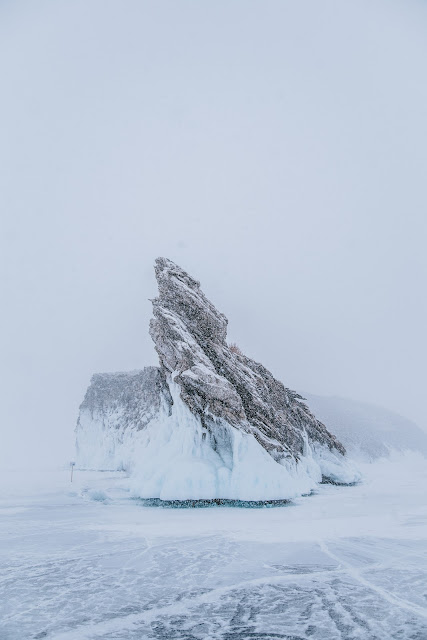9 Guinness World Records for the Blue Planet Lover
Here’s a list compiled from Guinness World Records for the mermaids and mermans travelers.
1. World’s Deadliest Lake – Lake Nyos in Cameroon, West Africa.
1. World’s Deadliest Lake – Lake Nyos in Cameroon, West Africa.
The lake responsible for the most deaths in the world because of its toxic gases have claimed nearly 2,000 lives in recent decades. On just one night of August 1986, between 1,600 and 1,800 people and countless animals were killed by a large natural release of carbon-dioxide gas.
2. World’s Oldest Lake – Lake Baikal in Siberia, Russia.
The lake is between 20 and 25 million years old. It was formed by a tectonic rift in the Earth’s crust, which still causes Baikal to widen by about 2cm (0.78 in) per year. It hold more water than North America’s Great Lakes combined and has a wealth of biodiversity, including the world’s only freshwater seal.
3. World’s Largest Marine Reserve – Northwestern Hawaiian Islands Marine National Monument.
It covers 356,879 km2 (137,791 miles2) of the Pacific Ocean surrounding the northwestern Hawaiian islands. The coral reefs are home to more than 7,000 marine species, a quarter of which are unique to the area.
It covers 356,879 km2 (137,791 miles2) of the Pacific Ocean surrounding the northwestern Hawaiian islands. The coral reefs are home to more than 7,000 marine species, a quarter of which are unique to the area.
4. World’s Smallest Ocean – The Arctic Ocean.
The ocean has an area of 9,485,000 km2 (3,662,000miles2) making it the smallest ocean in the world. It has a maximum depth of just 5,450m (17,880 ft). The ocean’s waters are frozen for up to 10 months a year, with any surrounding landmass usually covered in snow and ice. Up to 50cm (19in) of ice covers the frozen waters in the coldest months of March and April.
The ocean has an area of 9,485,000 km2 (3,662,000miles2) making it the smallest ocean in the world. It has a maximum depth of just 5,450m (17,880 ft). The ocean’s waters are frozen for up to 10 months a year, with any surrounding landmass usually covered in snow and ice. Up to 50cm (19in) of ice covers the frozen waters in the coldest months of March and April.
5. World’s Oldest Ocean – The Pacific Ocean.
The Pacific Ocean has the oldest of the current ocean basins, with the earliest rocks found on its floor being around 200 million years old. The world’s oceans are constantly changing in size as tectonics make the great plates of the Earth’s crust slowly move around. One effect of this plate movement is that the Pacific Ocean is gradually shrinking in size by a few centimeters each year, just as the Atlantic Ocean is gradually expanding.
The Pacific Ocean has the oldest of the current ocean basins, with the earliest rocks found on its floor being around 200 million years old. The world’s oceans are constantly changing in size as tectonics make the great plates of the Earth’s crust slowly move around. One effect of this plate movement is that the Pacific Ocean is gradually shrinking in size by a few centimeters each year, just as the Atlantic Ocean is gradually expanding.
6. World’s Highest Raised Beach – The High Coast in Vasternorrland, Sweden.
This has a single beach, some 260m (853ft) above sea level. Its high elevation is a result of land rising after the last ice age, when the vast weight of the icesheets was lifted. The region is still rising, at a rate of around 1cm per year, and will continue rising for around another 10,000 years.
This has a single beach, some 260m (853ft) above sea level. Its high elevation is a result of land rising after the last ice age, when the vast weight of the icesheets was lifted. The region is still rising, at a rate of around 1cm per year, and will continue rising for around another 10,000 years.
7. World's Clearest Sea - The Weddell Sea located off Antartica.
On October 1986, scientists from the Alfred Wegener Institute in Bremerhaven, Germany, measured the clarity by lowering a standard Secchi disc, measuring 30cm across, into the water until it was no longer visible. In the Weddell Sea, the disc was visible until it reached a depth of 80m - which means the sea has a clarity similar to that of distilled water!
On October 1986, scientists from the Alfred Wegener Institute in Bremerhaven, Germany, measured the clarity by lowering a standard Secchi disc, measuring 30cm across, into the water until it was no longer visible. In the Weddell Sea, the disc was visible until it reached a depth of 80m - which means the sea has a clarity similar to that of distilled water!
8. World's Longest River - The Nile River.
The river extends 6,695km and has two tributaries. The White Nile flows through Lake Victoria in east central Africa and merges with the Blue Nile in Sudan. The river then flows north through Egypt, until it reaches the Nile Delta on the edge of the Mediterranean Sea.
The river extends 6,695km and has two tributaries. The White Nile flows through Lake Victoria in east central Africa and merges with the Blue Nile in Sudan. The river then flows north through Egypt, until it reaches the Nile Delta on the edge of the Mediterranean Sea.
9. World's Longest Estuary - the Ob River in Northern Russia.Running at 885km, it is also the world's widest river that is able to freeze solid in winter.
